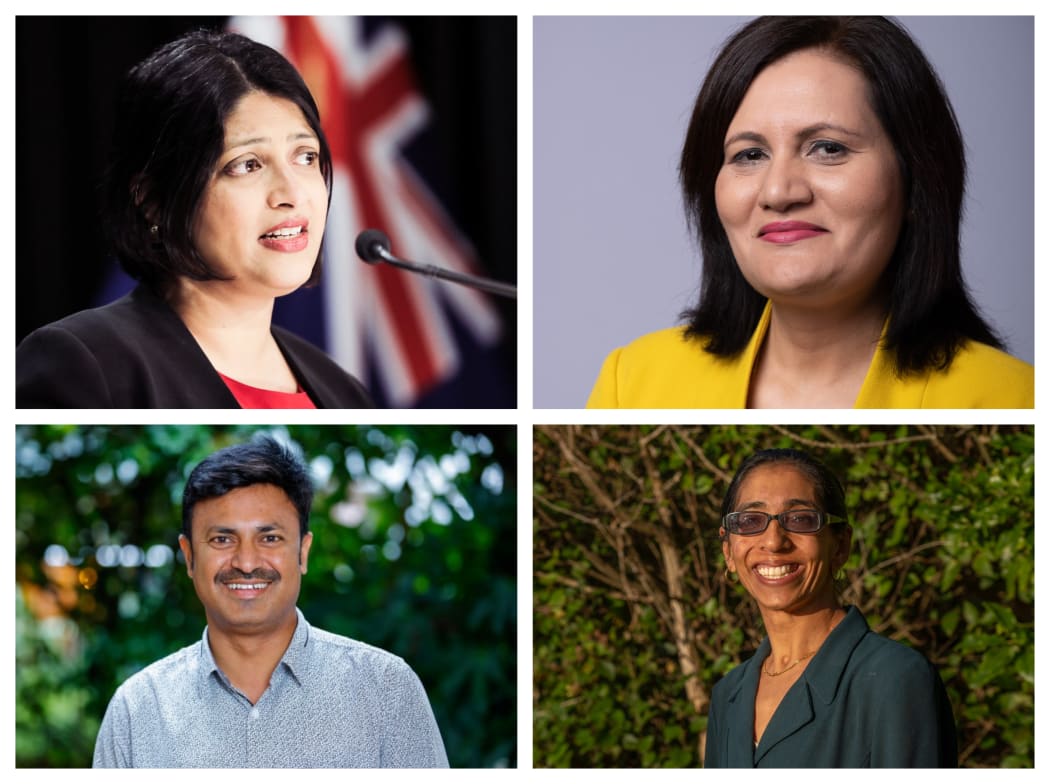
Clockwise from top left: Labour's Priyanca Radhakrishnan, ACT's Parmjeet Parmar, Greens' Neelu Jennings and National's Siva Kilari. Photo: Supplied
A record number of Indian-origin candidates are standing in this year's general election from across the political spectrum. National has five candidates, ACT has four, and Labour and the Greens have two each. RNZ asked the 13 candidates to outline their campaign priorities as they seek to win a seat in parliament in the upcoming election.
ACT
The highest-ranked Indian-origin nominee is Pakuranga candidate Parmjeet Parmar (list ranking 9), who is a former National MP (2014-20). "I chose ACT because it is the only political party that consistently adopts an evidence-based approach to policymaking," she says. "Along with the rising cost of living and increasing crime rates, my main concern is the implementation of race-based agendas within our public system by the current Labour government."
Himanshu Parmar (13), a first-time candidate standing for Hamilton East, says his focus is "what voters tell me are their main concerns: the cost of living, crime and co-governance". "We need growth in the Waikato region," he says. "We also need strong advocacy in the law-and-order space."
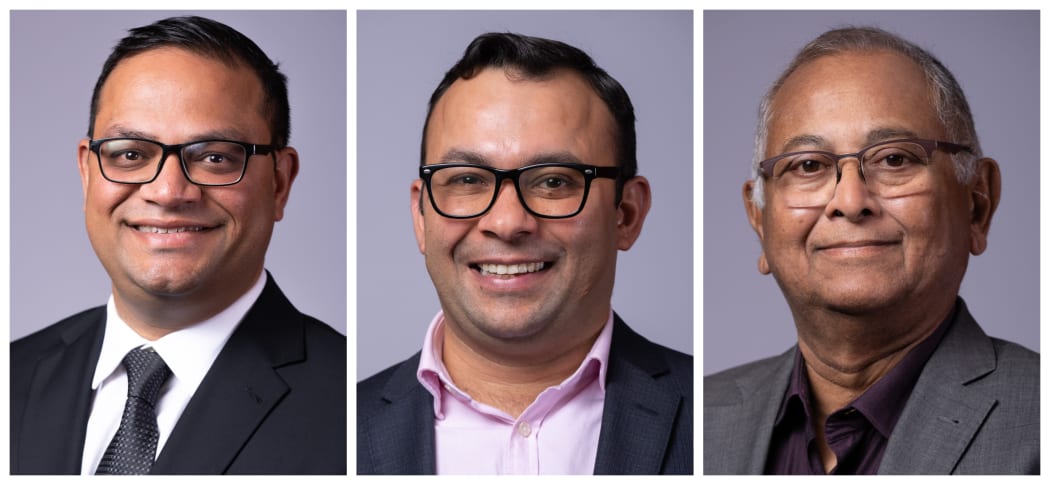
From left to right: Himanshu Parmar, Rahul Chopra and Pothen Joseph. Photo: Supplied
Mt Roskill candidate Rahul Chopra (26) wants voters to make a real difference when casting their ballot. "I believe New Zealanders want real change this time, not the same stale choice of Labour or National," he says. "The tired policies perpetuated by both major political parties have fostered a culture of mediocrity and complacency, rather than one of aspiration and achievement."
Meanwhile, ACT's lowest-ranked Indian-origin nominee, Mangere candidate Pothen Joseph (46), wants to revitalise the country's education system, among other things. "Our current system is in need of significant reform to meet basic international standards and be more affordable," he says. "In healthcare, too, we need to address the shortage of skilled professionals through immigration and more in-house training facilities."
National
Turning to National, all Indian-origin candidates primarily tow the party line and repeat leader Christopher Luxon's three main focal areas: rebuilding the economy, restoring law and order, and improving health and education outcomes.
Mahesh Muralidhar (43), who is taking on Chlöe Swarbrick of the Green Party in Auckland Central, highlights local issues in his electorate. "A surging homelessness crisis emphasises the urgency to reform social housing and address Auckland Transport's inefficiencies," he says. "We are committed to streamlining government functions, partnering with private and community sectors, and directing resources to frontline services.
"Additionally, I aim to bolster New Zealand's ties with India. It's also pivotal to celebrate the Indian diaspora in New Zealand, acknowledging their cultural events, community organizations and unique challenges."
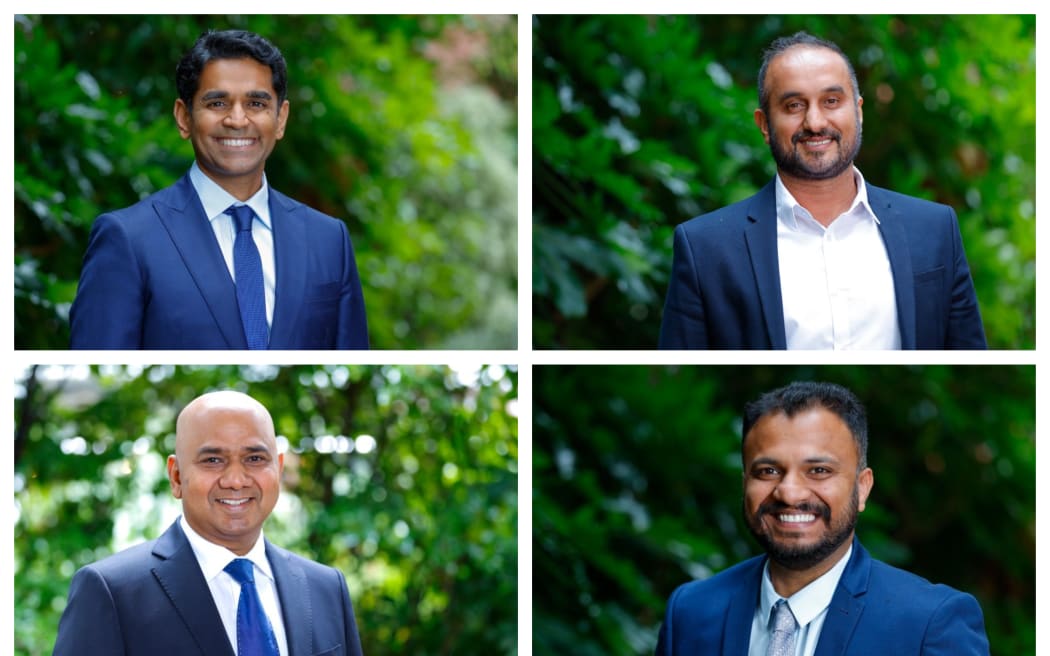
Clockwise from top left: Mahesh Muralidhar, Navtej Singh Randhawa, Ankit Bansal and Karunā Muthu. Photo: Supplied
Panmure-Ōtāhuhu candidate Navtej Singh Randhawa (46), whose great-grandfather was among the first Indian immigrants to New Zealand, thinks the ethnic community should be better reflected at senior levels of government. "There is an under-representation of diverse communities at many levels of leadership, even in government departments," he says. "This needs to be addressed. We need to shift the focus to true multiculturalism in a bicultural nation."
Karunā Muthu (51), who is the only Indian-origin candidate across all political parties in the Wellington region, describes his campaign in Rongotai as being laser-focused. "People here are being stretched in every direction with higher mortgage payments, rents, groceries and fuel," he says. "I will also work towards getting the second Mount Victoria tunnel built to shorten journey times."
Meanwhile, Palmerston North candidate Ankit Bansal (52) says, "National is the only party that closely aligns with my values of taking personal responsibility, rewarding hard work and providing equal opportunities to all New Zealanders."
National's highest-ranked Indian-origin candidate, Siva Kilari (30), shares a similar sentiment. "Law and order is the most important issue in my electorate," the Manurewa candidate says. "Labour is soft on crime, and it shows here."
Labour
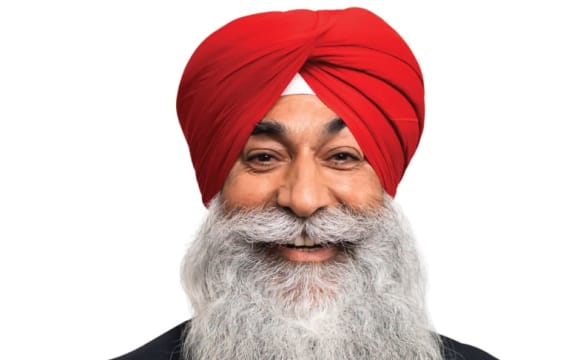
Kharag Singh. Photo: Supplied
Labour candidate for Maungakiekie Priyanca Radhakrishnan (15) highlights the local connections she has made in the six years she has been based in the electorate.
"My priority is to support Maungakiekie families access initiatives to reduce the cost of living, support local schools and community organisations to thrive, and continue to advocate for crime prevention measures and improve community safety locally," she says. "Improving the network of cycleways and walking lanes, and accessibility of public transport will be some of the focus areas in my next term."
Labour's other Indian-origin nominee, Botany candidate Kharag Singh (66), wants to focus on issues affecting New Zealand's youth. "That's why my priorities include education and working towards the culturally inclusive well-being of our community," he says. "I want to contribute to build a society that accepts our ethnic identities."
Green
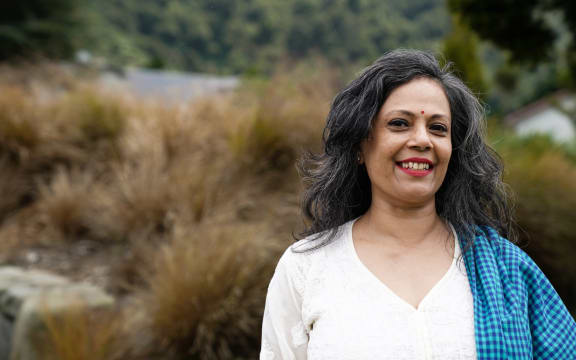
Sapna Samant. Photo: Supplied
The Green Party nominees declined to comment on the story, but their Indian-origin nominees - Hutt South candidate Neelu Jennings (27) and Maungakiekie candidate Sapna Samant (28) - shared their election priorities on the The Spinoff-backed platform policy.nz.
"My priorities are a guaranteed income of at least $385 a week to everyone, build 35,000 new homes over five years and create disability legislation underpinned by enforceable disability standards," Jennings says.
Meanwhile, Samant wants to develop an equitable, accessible, inclusive, sustainable and free primary healthcare system. Her other focus areas are better residency pathways for migrants and amnesty for overstayers.
Stay up to date with Checkpoint's live election night special with Lisa Owen, Corin Dann, Jane Patterson and reporters around the country from 7pm to midnight on Saturday, running alongside live data and blogging with electorate and party vote results on RNZ's website. RNZ Asia will also be running its own live blog in Chinese.
实时更新报道, 尽在RNZ中文! 本周六(10月14日大选日当天)下午5点起,以中文实时追踪2023年新西兰大选,各党票数、全国选情 、计票进展与最终结果,第一手资讯尽在 www.rnz.co.nz/chinese。 本周六,我们与您一同关注大选。
Then on Sunday, stay tuned for the Morning Report special from 8am to 10am, examining the results, the drama, and the changes from the night before: with polls this close, exactly who's in government will likely come down to negotiations.

